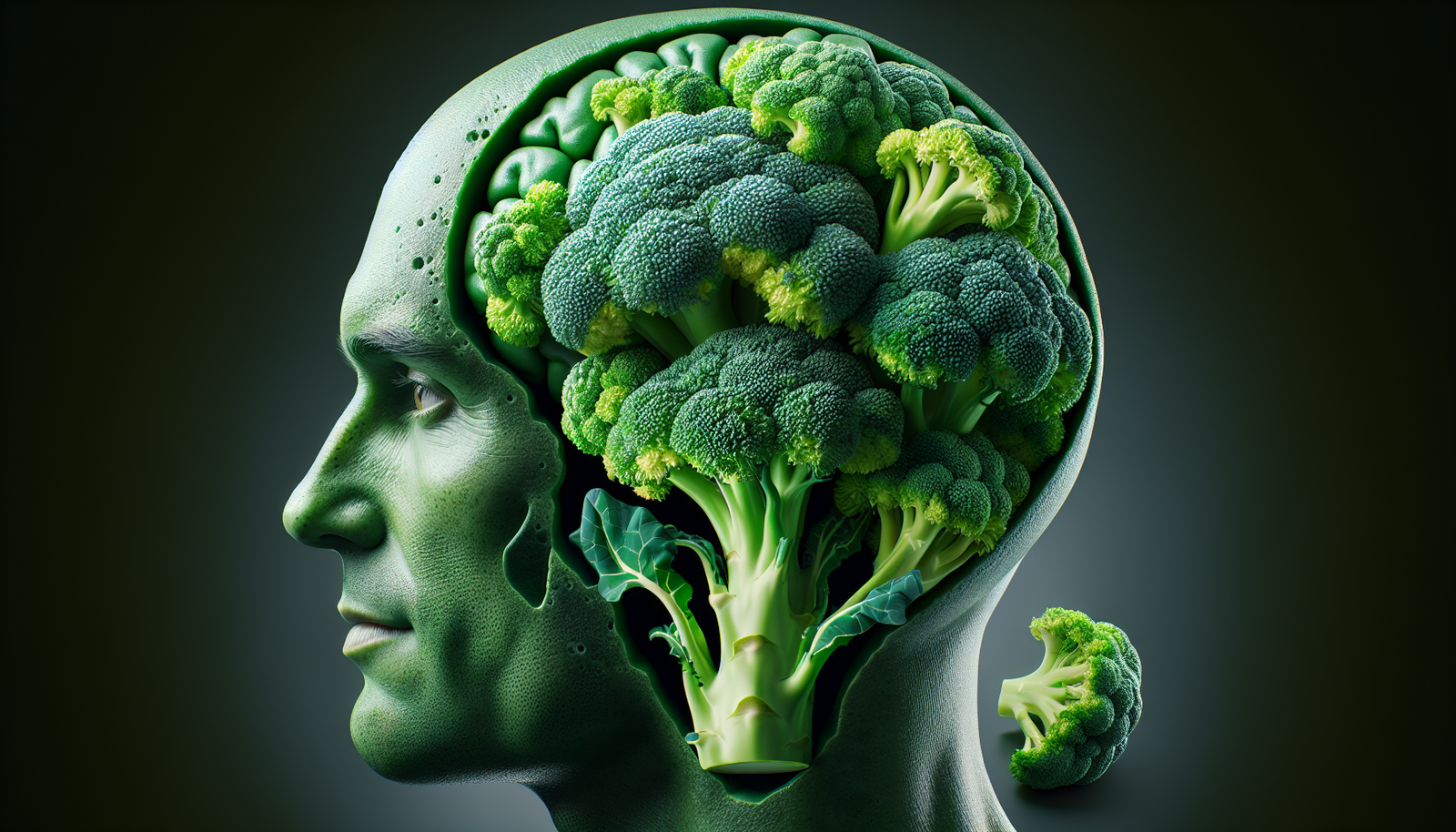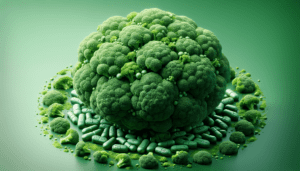Broccoli: A Nutrient Powerhouse
Broccoli is widely recognized as a nutrient-dense vegetable, packed with vitamins, minerals, fiber, and antioxidants. Understanding these components can help you appreciate how broccoli supports overall health and well-being.
Vitamins and Minerals in Broccoli
Broccoli is an excellent source of several essential vitamins and minerals, making it a valuable addition to any diet. The table below highlights some of the key nutrients found in broccoli and their respective benefits.
| Nutrient | Amount (per 100g) | % Daily Value | Benefits |
|---|---|---|---|
| Vitamin C | 89.2 mg | 99% | Boosts immune function, promotes healthy skin |
| Vitamin K | 101.6 µg | 85% | Supports bone health, aids in blood clotting |
| Vitamin A | 623 IU | 12% | Maintains vision, supports immune function |
| Potassium | 316 mg | 7% | Regulates fluid balance, supports muscle contractions |
| Calcium | 47 mg | 5% | Promotes strong bones and teeth |
| Iron | 0.73 mg | 4% | Supports red blood cell production |
Data sourced from Healthline and NCBI.
For more detailed information on the nutritional value of broccoli, visit our comprehensive guide.
Antioxidants and Fiber Content
Broccoli is also rich in antioxidants and fiber, which contribute to its health-promoting properties.
Antioxidants:
- Sulforaphane: One of the most potent antioxidants found in broccoli. This compound supports healthy cells and tissues, potentially reducing the risk of chronic diseases.
- Kaempferol: A flavonoid with anti-inflammatory effects, shown to protect against oxidative damage.
- Vitamin C and E, β-carotene: These antioxidants help neutralize free radicals, reducing the risk of cardiovascular diseases, certain cancers, and neurodegenerative disorders.
Fiber:
- Broccoli is a good source of dietary fiber, providing about 2.6 grams per 100 grams. Fiber aids in digestion, helps maintain a healthy gut, and can contribute to weight management.
For more on the benefits of broccoli, including how it supports digestion and weight loss, check out our related articles on broccoli and digestion and broccoli and weight loss.
Whether you enjoy broccoli steamed, roasted, or raw, incorporating this nutrient powerhouse into your diet can provide numerous health benefits. To learn more about how broccoli can support specific health concerns, explore our articles on broccoli and heart health and broccoli and cancer prevention.
Health Benefits of Broccoli
Broccoli is renowned for its numerous health benefits, largely due to its rich nutrient profile. This section explores two key aspects of broccoli’s health benefits: the effects of sulforaphane and its anti-inflammatory properties.
Sulforaphane and Its Effects
Sulforaphane is a potent antioxidant found in broccoli and other cruciferous vegetables. It offers various health-protective effects, including cellular protection and support for healthy tissues throughout the body.
Studies have shown that sulforaphane plays a significant role in brain health. In animal models, it has been demonstrated to improve cognitive function following traumatic brain injury. For instance, sulforaphane administration improved performance in tasks dependent on the hippocampus and prefrontal cortex in rats with brain injuries.
| Effect | Description |
|---|---|
| Cognitive Function | Improves performance in hippocampal- and prefrontal cortex-dependent tasks |
| Memory | Reduces working memory dysfunction |
| Neurologic Function | Preserves neurologic function, enhancing learning and memory |
Sulforaphane treatment initiated shortly after injury (1 hour post-injury) significantly enhanced learning, memory, and performance in working memory tasks in rats.
For more information on how broccoli supports brain health, visit our article on broccoli and brain health.
Anti-Inflammatory Properties
Broccoli contains several bioactive compounds, such as kaempferol, which exhibit anti-inflammatory effects. These compounds have been shown to reduce inflammation in both animal and test-tube studies.
Inflammation is a natural response to injury or infection, but chronic inflammation can lead to various health issues. The anti-inflammatory properties of broccoli help mitigate chronic inflammation, potentially reducing the risk of inflammatory diseases.
| Compound | Effect |
|---|---|
| Kaempferol | Reduces inflammation in animal and test-tube studies |
| Sulforaphane | Supports healthy cells and tissues |
The anti-inflammatory effects of broccoli contribute to its overall health benefits, making it a valuable addition to a balanced diet. For more details on the benefits of broccoli, explore our comprehensive guide.
By including broccoli in your diet, you can take advantage of its sulforaphane and anti-inflammatory properties, supporting both brain health and overall well-being. For further information about the nutritional value of broccoli, check out our detailed articles on related topics.
Broccoli and Brain Health
Broccoli, often celebrated for its nutritional value, boasts significant cognitive benefits. This section delves into how sulforaphane, a key compound found in broccoli, supports brain health and cognitive function.
Sulforaphane’s Role in Cognitive Function
Sulforaphane, a compound prevalent in cruciferous vegetables like broccoli, offers robust cellular protection, particularly in cases of brain injury. Research indicates that sulforaphane administration can improve cognitive function in rats, especially when tested in tasks dependent on the hippocampus and prefrontal cortex following traumatic brain injury.
When administered one hour post-injury, sulforaphane enhances performance in the Morris water maze task by decreasing learning latencies and improving platform localization during a probe trial. It also reduces working memory dysfunction, as tested using the delayed match-to-place task (NCBI).
The compound preserves neurological function in injured animals, evidenced by improved learning and memory, and better performance in working memory tasks (NCBI). Additionally, sulforaphane reduces oxidative damage in the brains of rats with traumatic brain injury, as indicated by lower levels of 4-Hydroxynonenal (4-HNE) immunoreactivity in the cortex surrounding the injury site and the CA3 subfield of the hippocampus.
Cognitive Benefits of Broccoli Consumption
Regular consumption of broccoli can offer substantial cognitive benefits. Sulforaphane, a key component of broccoli, plays a crucial role in enhancing brain health.
| Study Findings | Cognitive Impact |
|---|---|
| 1 hr post-injury administration | Enhanced learning and memory |
| Improved Morris water maze performance | Better platform localization |
| Decreased oxidative damage | Reduced 4-HNE immunoreactivity |
For those looking to improve their cognitive function through diet, incorporating broccoli can be highly beneficial. The antioxidants and other compounds in broccoli contribute to overall brain health, making it a valuable addition to a balanced diet. For more information on the benefits of broccoli and its impact on various health aspects, explore our detailed articles on broccoli and heart health, broccoli and cancer prevention, and the nutritional value of broccoli.
Broccoli Consumption and Mortality
Relationship Between Broccoli Intake and Mortality
Research indicates that frequent consumption of broccoli is linked with significantly lower risks of all-cause mortality. Compared to individuals who never consume broccoli, those who eat it 1-2 times per week experience a 32-43% reduction in mortality risk (Frontiers in Nutrition). This benefit is even more pronounced with higher frequencies of broccoli consumption. Specifically, males consuming broccoli 1-2 times per week and females consuming it three or more times per week see substantial decreases in all-cause mortality.
| Frequency of Broccoli Consumption | Reduction in Mortality Risk |
|---|---|
| 1-2 times per week | 32-43% |
| ≥3 times per week (females) | Significant reduction |
For additional insights on the nutritional value of broccoli, explore our detailed guide.
Broccoli’s Impact on Cardiovascular and Cancer Risks
Broccoli’s rich nutrient profile plays a crucial role in reducing the risks of cardiovascular diseases and cancer. It is an excellent source of vitamins C, K, and A, and minerals such as potassium, calcium, and iron. These nutrients, combined with its antioxidant and bioactive compounds like glucosinolates, sulforaphane, and indole-3-carbinol, provide significant health benefits.
Sulforaphane, in particular, has been shown to inhibit cancer cell growth and induce apoptosis in various cancers, including breast, prostate, lung, and colorectal cancers. The antioxidants in broccoli, such as vitamins C and E, β-carotene, and various flavonoids, help protect cells from oxidative damage, reducing the risk of chronic diseases like cardiovascular disorders and neurodegenerative conditions.
For more information on how broccoli contributes to cancer prevention, visit our article on broccoli and cancer prevention.
Broccoli’s impact extends to heart health as well, with its anti-inflammatory and antioxidant properties contributing to lower cardiovascular risks. These benefits make broccoli an essential part of a diet focused on long-term health and longevity.
For further reading on how broccoli contributes to heart health, see our article on broccoli and heart health.
By incorporating broccoli into your diet regularly, you can harness its full potential to support overall health, including its significant impact on mortality rates and its protective effects against cardiovascular diseases and cancer.



